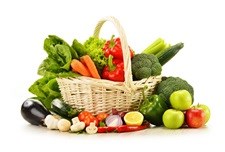
Top stories






More news






ESG & Sustainability
#Sona2026: President announces crisis committee to tackle SA's water challenges








According to Jan van Zyl, FNB head of agricultural information and marketing, this is largely based on the improved economic conditions in developed markets and specifically the US. "In the US, the uptick in real economic growth was supported by the indications of sustained improvement in unemployment, residential property sales including new buildings and the positive outlook of the Purchasing Managers Index."
His prognosis was that if the US economic health improved, it would positively affect the world economy. Even in the largely struggling Eurozone there were signs of improvement. "At least we have passed the point of wondering if Greece would exit the Eurozone."
While noting that indicators such as international commodity prices remained relatively soft and the shipping indices still did not indicate that the international trade was supporting a sustainable recovery, he is confident that they would follow suit.
He cautions that less liquidity in the US economy, as a result of tapering of its Quantitative Easing could lead to an increase in interest rates; harming recovery and capital inflows from the US to emerging economies, including South Africa, exacerbating balance of payment deficits and exchange rates.
He said one of the positive developments is that the rest of the African continent is increasingly offering business opportunities for South African business. The trade balance between South Africa and the rest of Africa is positive and many local companies are already well established in the continent. He believes that South Africa would be the food basket for sub Sahara Africa for some time to come and also alluded to the motor manufacturer, Porsche, that is planning to set up showrooms and service centres across Africa.
On the economic front, SA would be significantly affected by the tapering of Quantitative Easing in the US causing smaller capital inflows, deficits on the balance of payments and inflation leading to domestic interest rates nudging upwards.
However he expects 2014 to be very eventful due to a number of factors. The most significant of these would be the run up to and the outcome of the national election. Other issues that would need to be resolved in the New Year would be the effects of the e-tolls, the fracking of the Karoo, the intended reopening of land claims and expropriation legislation.
Specifically in agriculture, there were concerns regarding labour issues as well as drought conditions in the north and western regions of the country. However, all of this should not distract from the positive signs such as the narrowing difference between imports and exports, which leads to an improvement in trade deficit.
He believes that the trends in government expenditure in relation to revenue were also improving, which supported the reduction in the fiscal deficit. The expectation was that the economy would grow at close to 3 % in 2014 compared to this year's expected 1.9%. He also considers labour and consumer debt to be two issues that need to be resolved to ensure a prosperous 2014.
He reiterated that the bank was supportive of agriculture and agribusiness because of the growing need for food, feed and fuel. Growing populations and economies required more food and specifically more protein whereas the pressure to access green energy would continue unabated.
While farmers in South Africa potentially have a lot to look forward to, agriculture remains in a precarious situation with a number of farmers having diminished alarmingly, ultimately leading to less farming enterprises but bigger businesses. Van Zyl estimates that currently 8000 farmers are responsible for 80% of South Africa's food production in an industry which contributes R450 billion to the economy.